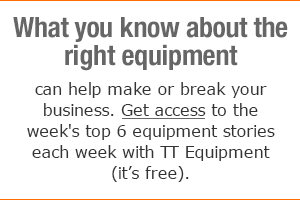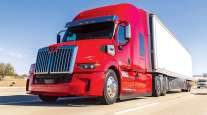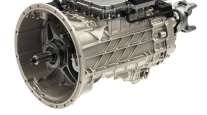Western Star Benefiting From Business Climate, Executives Say
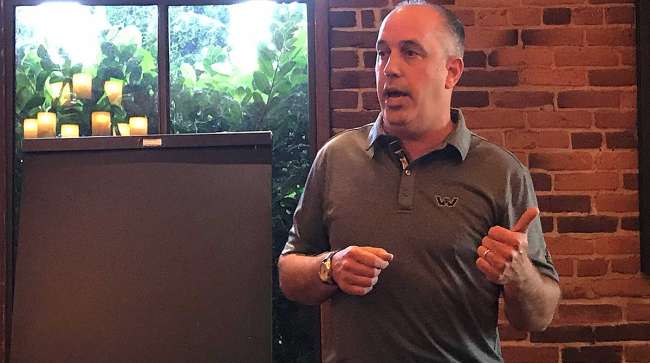
YOUNTVILLE, Calif. – Booming demand for new Class 8 trucks and activity on the vocational side not seen since the late 2000s is lifting demand for Western Star trucks, company executives said.
“It is strong across the product line,” CEO David Carson said July 17 during an exclusive interview with Transport Topics at a media event held here, speaking about the company’s on-highway model – the 5700 – as well as its broader lineup of vocational models.
“We see very good demand on the on-highway side,” he said, noting that customers for the 5700 fit into a specific mold. “It is not being purchased like a commodity and it’s usually not being purchased in large numbers – it’s a little bit more of an emotional purchase,” he said. “It could be one truck, it could be five trucks, but [buyers] are really looking for that distinctive appearance.” Carson said that owner-operators and small businesses are core buyers for the truck.
Carson credits general enthusiasm among business owners in the current economic environment for strong demand across the Class 8 segment. Sales topped 21,000 in June, according to WardsAuto.com.
“I suppose if you asked 100 people you’d get 100 answers, but it’s truck replacement, tax [reform], cash and/or opportunities as we rolled into 2018 – enthusiasm from an economic standpoint [and] certainly optimism about business opportunities,” he said.
On the vocational side, spending on residential and nonresidential construction that has returned to pre-recession levels is lifting demand for those products, but Carson noted that it doesn’t stop there.
“There is money out there; there is work, there are projects – that is obviously driving business,” he said. “It seems to be all over the map,” he said. “We see activity and [price] quoting all over.”
During a presentation the day before, vice president for marketing and product strategy Samantha Parlier noted that the diversity of businesses across the company’s vocational customer base contributes to the breadth of that demand. In fact, that diversity compelled Daimler Trucks North America across a series of meetings to develop a definition for what constitutes a vocational truck.
“A vocational truck is a truck that was designed, and built, and specified in such a way that it was going to do a job or series of jobs that couldn’t be easily substituted by a rental, linehaul or city pickup and delivery,” she said, rattling off the definition the group settled on.
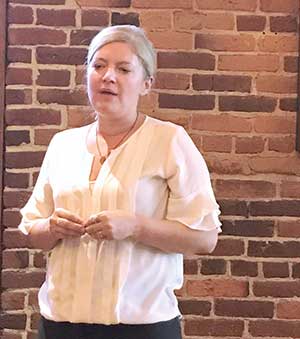
Parlier by Joe Howard/Transport Topics
She also noted how that focus on work separates commercial truck buyers from the automotive segment. “The truck is a tool – a business tool. People buy trucks because they have a job to do,” she said. “As a company we understand the needs of our vocational customers. It’s complicated – it’s not straightforward – and everybody has incredibly different needs that we are going to meet.”
During this July 16 presentation, Carson noted that sometimes those needs are brought on by an emergency, pointing to a dam spillway that collapsed near Sacramento last year.
“They thought the erosion on the spillway would work back toward the dam and erode the foundation of the dam. That created an issue, potentially, of having whole communities that would have flooded had that dam broken,” he said. “There is no budget for that infrastructure work – nobody had money socked away to fix that – but they had to fix it.” Situations like this, Carson said, also present an opportunity for Western Star.
“Brands like Western Star have to have the right products, with the right body builders, with solutions that are available for those projects when those come along,” he said. “We are extremely well-positioned for that."


